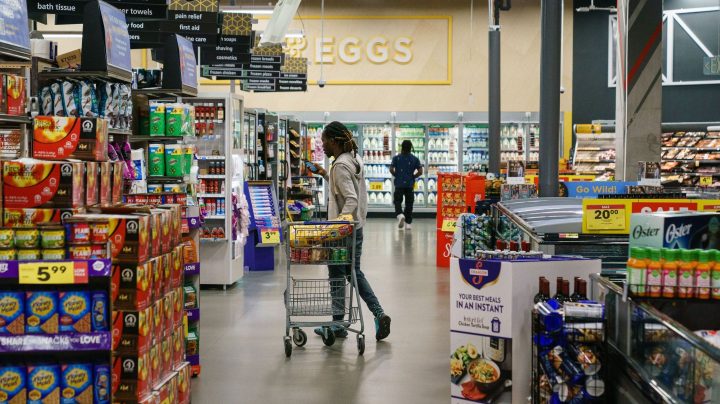
When “buy now, pay later” becomes a way to pay for groceries
When “buy now, pay later” becomes a way to pay for groceries

There’s been an 8% increase in “buy now, pay later” orders so far this month compared to last year, according to Adobe Analytics. But in this inflationary time, it’s not just presents that people are using it for, it’s bare necessities.
One person who’s come to rely on buy now, pay later is Ionnet Rodriguez, a New York native. She lives in Brooklyn with her four kids, who range in age from 4 to 36. She says the older ones, especially, can consume a lot of food.
“They’ve all grown over 6 feet tall,” said Rodriguez. “They can eat me out of house and home in a heartbeat.”
Her monthly grocery bill is around $1,000, and at the start of the pandemic, she started using buy now, pay later to spread the cost over the course of six or eight weeks. She also uses it to buy things like medicine and gas.
“You save a lot of money versus the interest of a lot of credit cards. They have very high interest rates,” Rodriguez said.
Some pay-later services charge simple interest, which means it doesn’t compound. Others charge a fee to merchants. Many of the companies started as a way to help people who might not have much money or credit make big-ticket purchases, like a mattress or an exercise bike.
But Matt Gross with the buy now, pay later company Affirm said it makes sense that people are using it for other things too.
“You don’t have to put it all on the card and then end up paying interest on not just your Christmas holiday gift, but your coffee and your groceries and your gas because you’re not paying off the balance in full each month,” Gross said.
Like any kind of credit, there can be downsides. If you don’t pay, some providers will charge late fees, cut you off, and it could also hurt your credit score.
“If you pay it on time, and everything goes smoothly, you may not necessarily get the credit for that in your credit score,” said Michael Taiano, a senior director at the credit agency Fitch Ratings. “But if you don’t pay, it could end up being a negative.”
That’s why Rodriguez, a former bookkeeper, carefully records everything she owes and to whom. She writes it all down in a big log book, and, she said, she’s never missed a payment.
There’s a lot happening in the world. Through it all, Marketplace is here for you.
You rely on Marketplace to break down the world’s events and tell you how it affects you in a fact-based, approachable way. We rely on your financial support to keep making that possible.
Your donation today powers the independent journalism that you rely on. For just $5/month, you can help sustain Marketplace so we can keep reporting on the things that matter to you.












